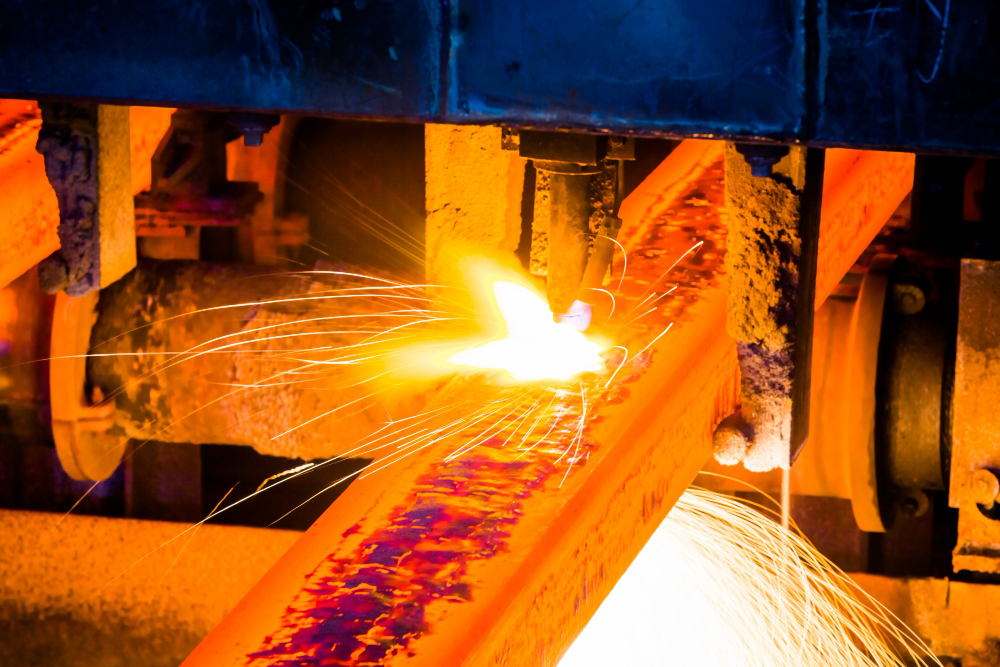
One of the significant sectors that heavily rely on caustic soda is the mining and metallurgy industry. In this article, we will explore the crucial role of caustic soda in mining and metallurgical processes, understanding its applications, benefits, and the impact it has on the industry’s efficiency and sustainability.
Mining and Metallurgy: An Overview
Mining and metallurgy are pivotal industries that involve extracting valuable minerals and ores from the earth and transforming them into usable materials for various applications. These materials are used in construction, manufacturing, energy production, and numerous other sectors critical to modern life.
The mining process begins with the extraction of ores from deposits in the earth’s crust. The ores are then processed to extract the desired minerals through various techniques such as crushing, grinding, and chemical separation. Metallurgy, on the other hand, involves further refining and processing these minerals to obtain high-quality metals.
Role of Caustic Soda in Mining
Caustic soda plays a significant role in the mining industry, primarily in the processing of certain ores. It is used in various stages of ore processing to enhance extraction efficiency and reduce impurities.
1. Alumina Extraction (Bayer Process)
The Bayer process is a well-established method for extracting alumina from bauxite ore, a key step in aluminum production. Caustic soda serves as a leaching agent in this process, breaking down the aluminum-containing minerals in bauxite to form soluble aluminate species. Through a series of chemical reactions, aluminum hydroxide is precipitated and later calcined to produce alumina, a fundamental precursor in the aluminum manufacturing process.
2. Gold Ore Processing
In the gold mining industry, caustic soda is utilized during the cyanide leaching process. This process helps separate gold from the ore by dissolving it in a weak cyanide solution. Caustic soda is added to maintain the alkaline pH required for optimal gold dissolution and absorption onto activated carbon, simplifying gold recovery and purification.
3. Uranium Extraction
Caustic soda plays a vital role in uranium mining through a process called alkaline leaching. Uranium ore is crushed and mixed with a concentrated solution of caustic soda, promoting the dissolution of uranium compounds. The resulting uranium-bearing solution is then further processed to extract uranium for nuclear fuel production.
Role of Caustic Soda in Metallurgy
In the field of metallurgy, caustic soda finds application in several critical processes, primarily in the production of certain metals.
1. Aluminum Production
In the metallurgical realm, caustic soda is instrumental in the production of aluminum from alumina. The process involves dissolving alumina in a caustic soda solution at high temperatures, yielding sodium aluminate. Electrolytic reduction of sodium aluminate results in the extraction of aluminum metal, a critical material used in various industries.
2. Steel Production
Caustic soda is employed in the production of steel from iron ore in a process known as alkaline pretreatment. The ore is heated with a caustic soda solution to remove impurities such as silica, phosphates, and alumina. This treatment aids in enhancing the overall efficiency of the steelmaking process.
3. Copper Refining
In copper refining, particularly the production of copper cathodes, caustic soda is used to neutralize acidic impurities present in copper concentrate. This process facilitates the precipitation of impurities as sludge, which is then removed, resulting in a purer copper solution that can be further processed into high-quality copper metal.
Benefits and Challenges
Benefits of Caustic Soda in Mining and Metallurgy
- Efficiency Enhancement: Caustic soda helps optimize ore processing and extraction rates, leading to increased efficiency in mining and metallurgical operations.
- Environmental Benefits: By facilitating more efficient extraction processes, caustic soda indirectly contributes to reducing the environmental footprint of mining and metallurgical activities.
- Resource Utilization: Caustic soda allows for the effective extraction and utilization of a wide range of minerals and metals, supporting sustainable resource management.
Challenges and Safety Considerations
- Safety Measures: Handling and transporting caustic soda necessitates stringent safety precautions due to its corrosive and reactive properties. Download our MSDS to learn how to safely handle Caustic Soda.
- Protective equipment, proper storage facilities, and well-defined handling procedures are vital.
- Environmental Impact: The production and use of caustic soda can have environmental implications if not managed properly. Spill containment and appropriate disposal practices are critical to prevent adverse effects on the environment.
Sustainability and Future Outlook
As the global focus on sustainability intensifies, the mining and metallurgical industries are actively seeking eco-friendly alternatives and cleaner production methods. Researchers and practitioners are exploring ways to reduce the environmental impact of caustic soda production, optimize its usage, and minimize waste. Additionally, advancements in recycling and reusing caustic soda are being explored to enhance sustainability and resource efficiency in these critical industries.
Conclusion
Caustic soda is an indispensable component in the mining and metallurgy industry, contributing significantly to the extraction and processing of valuable minerals and metals. Its versatile applications and crucial role in various processes make it an essential chemical in these sectors, playing a vital part in the production of materials that power our modern world. As the mining and metallurgy industry continues to evolve, caustic soda will remain a fundamental element in their processes, supporting sustainable growth and technological advancements.




